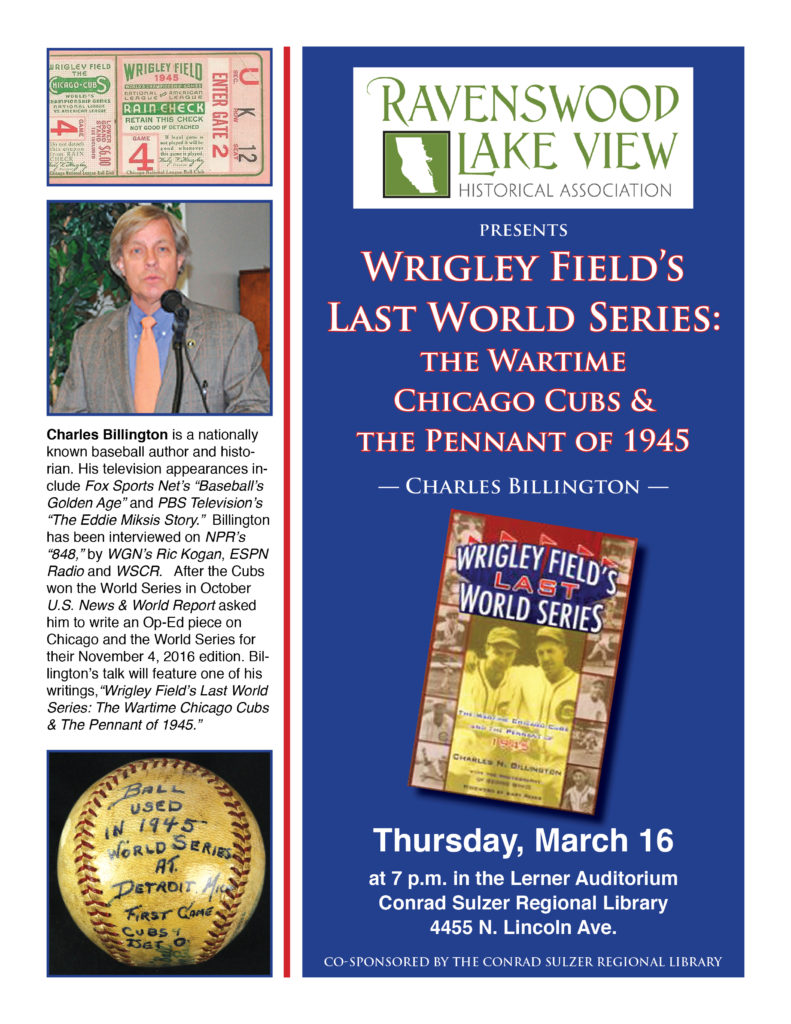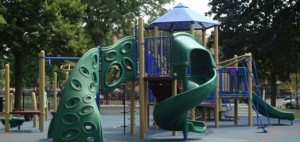Wrigley Field
All posts tagged Wrigley Field
4701 North Ashland Avenue
This park was originally a semi-professional baseball park named Gunther Park. Built in 1905, it had a seating capacity of 5,000. It was home to the Gunther Nine of the Chicago City League, The Chicago Green Sox of the United States Baseball League.
The Gunther Nine played their first game against the Spauldings here in April 1905, winning 4-3, according to Leslie A. Heaphy in her history of black baseball.
Attorney Jonas Hoover was enlisted by local residents to sue park owner J. D. Cameron in 1907. The residents objected to the noise from the park.
The Chicago Cubs played here too, taking on the Leland Giants in 1909.
The most noted game here was against the Leland Giants in 1910. The Giants played in a field located at what is now the Wentworth Gardens. The Gunthers broke the 35 game winning streak of the Giants in a 3-1 decision.
The field had a wooden fence in the outfield and a covered grandstand. It was abandoned in 1913 after the construction of Wrigley Field.
In 1914 the Ravenswood Improvement Association and local residents petitioned the Lincoln Park Commission to convert the former baseball stadium into a public park. The park commission acquired the land in 1920. Within two years tennis courts, a playground, an athletic field, a wading pool and a field house were constructed.
Each of the seven neighborhood parks created by the Lincoln Park Commission were named in honor of President Abraham Lincoln’s cabinet members. Salmon P Chase (1803-1873) served as Lincoln’s Secretary of the Treasury from 1861 to 1864. In late 1864 Lincoln appointed Chase Chief Justice of the US Supreme Court. Chase was known for defending runaway slaves and was a leader of the anti-slavery movement.
As one of his first acts as Chief Justice, Chase appointed John Rock the first African-American attorney to argue before the Supreme Court.
In 1934 the Lincoln Park Commission was consolidated into the Chicago Park District. The original field house was replaced with the current building in 1976.
SOURCES
Chicago Park District, Leslie A. Heaphy, Black Baseball and Chicago: Essays on the Players, Teams and Games of the Negro Leagues’ Most Important City McFarland 2006
THIS IS THE CURRENT END OF THE TOUR. To return to the Metra Station follow these directions:
- Walk north along the west border of the park, Ashland Ave., to Lawrence Ave, a distance of up to a tenth of a mile.
- At Lawrence Ave., turn left to the west. Follow Lawrence past Paulina and Hermitage, about two-tenths of a mile, till you reach Ravenswood. The Metra station is across Lawrence on your right.


